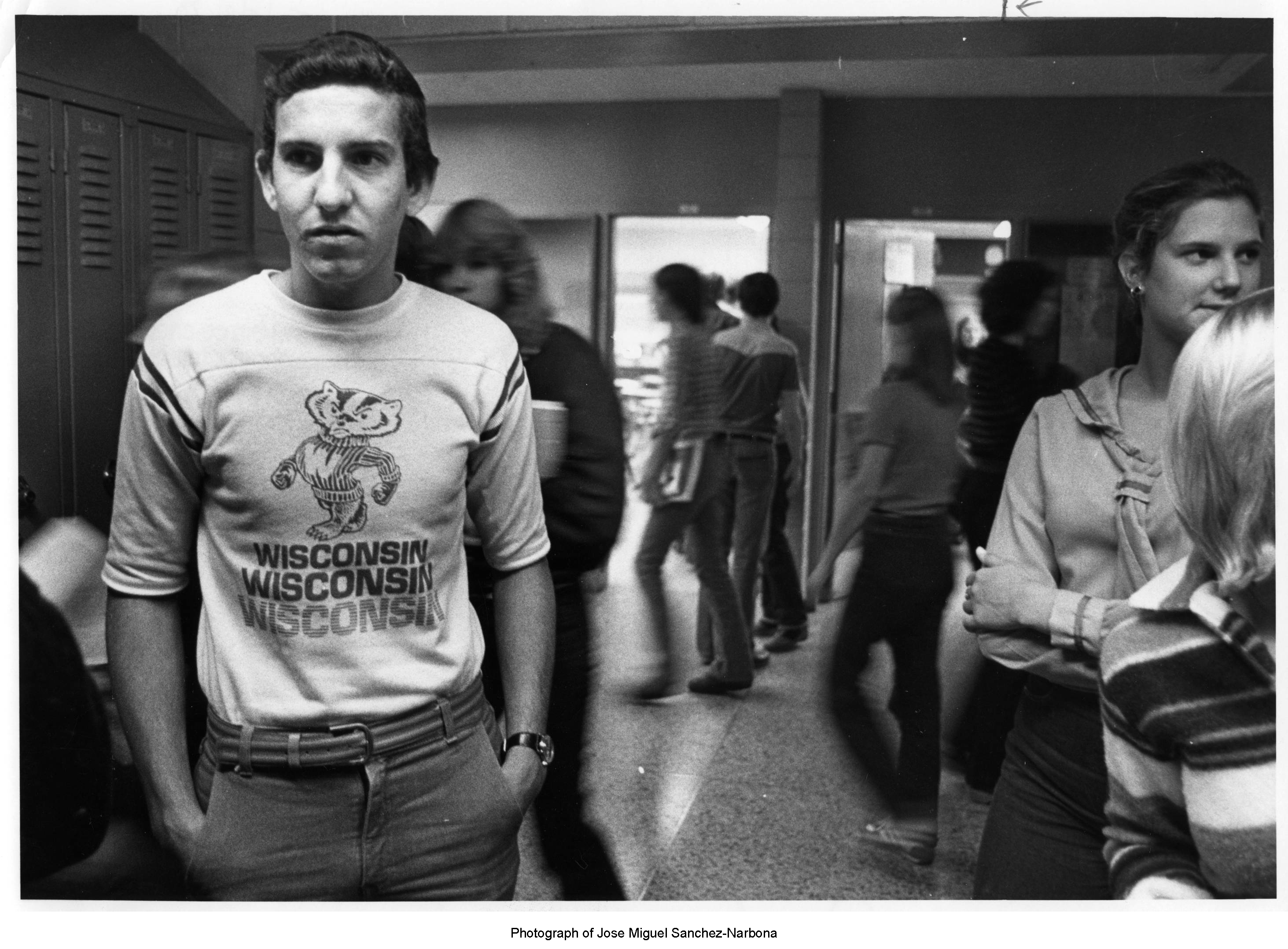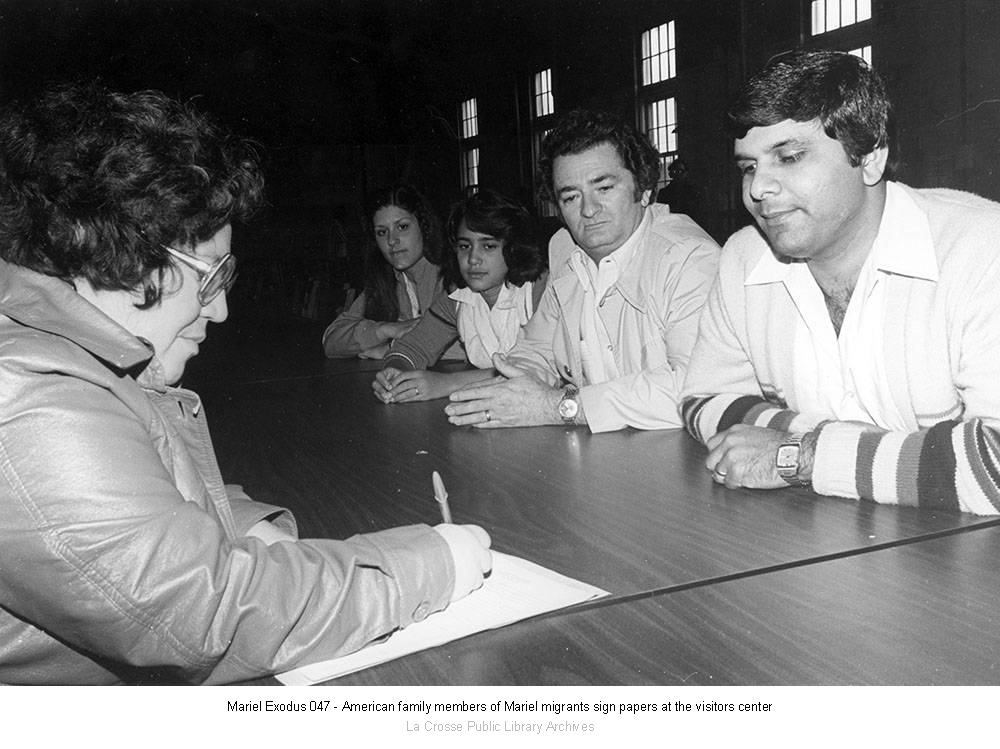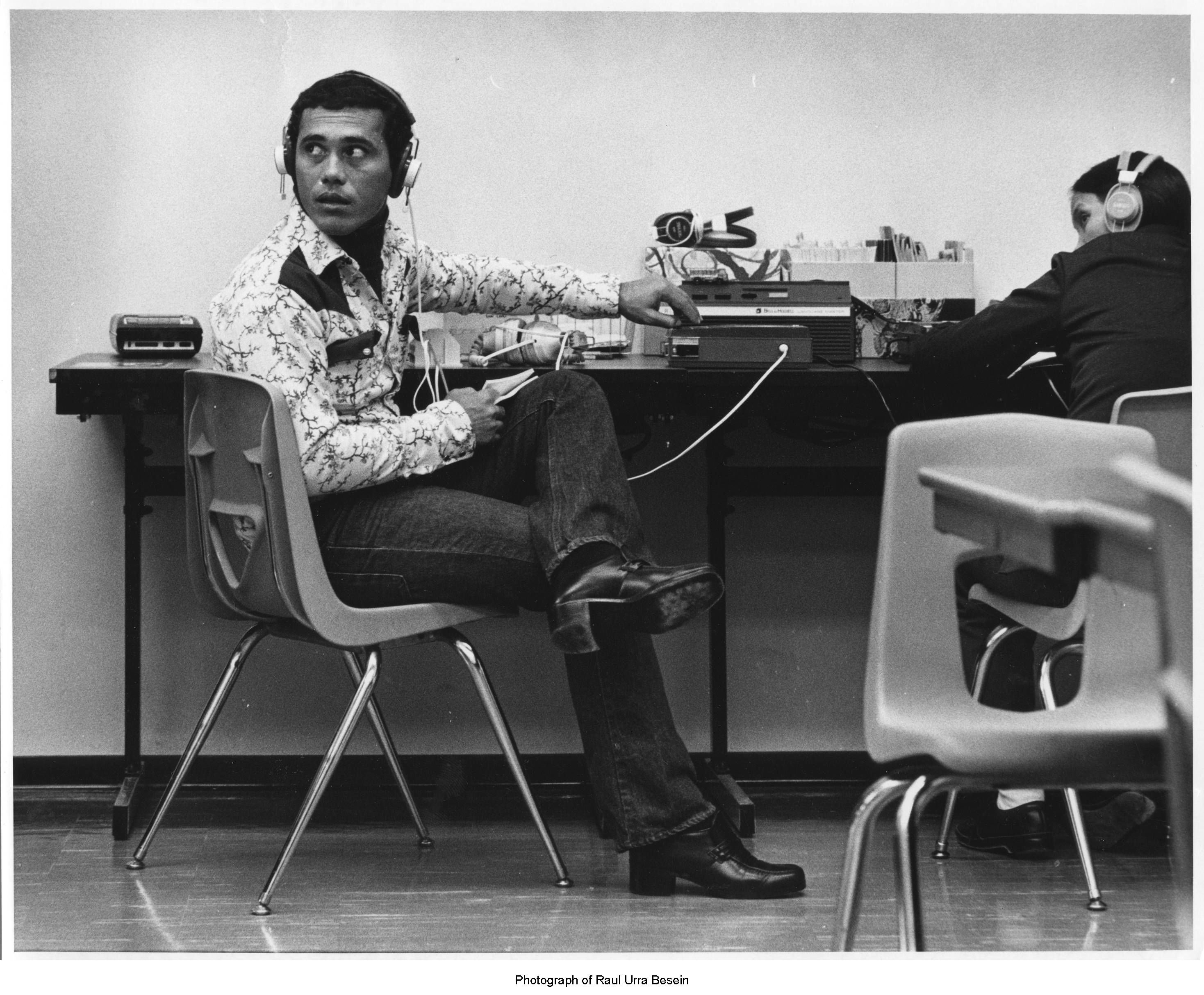
Becoming Wisconsinites / Una nueva vida en Wisconsin
In Wisconsin, language and cultural barriers continued limiting the access of Cubans to social, legal and immigration services. On departure from the Fort McCoy camp, Mariel migrants were expected to report to their INS district office within 60 days to establish eligibility for permanent residency in order to be able to apply for citizenship. While many Wisconsinites opened their homes and churches to Cubans and helped them find work and education, sponsors did not have to report to FEMA or U.S. Immigration on the progress of the Cubans, and they were not made aware of any next necessary steps in the immigration process of the Cubans. Fort McCoy authorities mostly relied on the migrants to pass on this information to their new sponsors. Careful matching with sponsors was not a priority either, as Fort McCoy and FEMA authorities rushed the placement fearing harsh winter conditions at the camp base. By 1982, the rate of broken sponsorships among Cubans who resettled around Madison, La Crosse, Tomah, Sparta and surrounding areas was estimated to be as high as 40%. Hundreds of Wisconsin Mariel Cubans who simply did not know enough English to understand these processes and explain them to their sponsors, or simply had left their sponsors, never initiated their immigration applications for a status adjustment.
En Wisconsin, las barreras lingüísticas y culturales continuaron limitando el acceso de los cubanos a los servicios sociales, legales y de inmigración. Al salir del campamento de Fort Mccoy, se esperaba que los inmigrantes del Mariel se presentaran en la oficina de distrito del INS (dentro de los 60 días posteriores a su salida del campamento) para establecer su elegibilidad para la residencia permanente y poder solicitar la ciudadanía. Si bien muchos habitantes de Wisconsin abrieron sus hogares e iglesias a los cubanos y los ayudaron a encontrar trabajo y educación, los patrocinadores no tenían que informar a FEMA o a Inmigración de los EE. UU. sobre el progreso de los cubanos, ni tampoco se les informaba a los patrocinadores sobre los siguientes pasos necesarios en el proceso de inmigración de los cubanos. Las autoridades de Fort McCoy asumían que los inmigrantes iban a transmitir esta información a sus nuevos patrocinadores. La búsqueda cuidadosa de patrocinadores tampoco era una prioridad, ya que las autoridades de Fort McCoy y FEMA apresuraban los procesos de patrocinio por temor a las duras condiciones invernales en la base del campamento. En 1982, se estimaba que la tasa de patrocinios rotos entre los cubanos que se reasentaban en Madison, La Crosse, Tomah, Sparta y áreas circundantes llegaba al 40%. Cientos de cubanos del Mariel de Wisconsin que simplemente no sabían suficiente inglés para entender estos procesos y explicárselos a sus patrocinadores, o simplemente habían abandonado a sus patrocinadores, nunca iniciaron sus solicitudes de inmigración para un ajuste de estatus.

Most Mariel migrants were part of a generation of Cubans which had grown up with the Cuban revolution and had no adult memory of pre-Castro capitalist Cuba. They were unaware of the socioeconomic challenges and disparities of living as an immigrant in American society. After decades of being told what to do by the ever-watchful Cuban state, Mariel young men were eager to plunge into the freedom and consumerism of the American way of life, but many simply didn’t know how. Faced with the nostalgia of exile, a new racial identity in the United States, and the daily economic struggles between wanting and fearing, life in the Anglo-speaking and predominantly white communities of Wisconsin became extremely difficult for black, homosexual, and juvenile Cubans.
La mayoría de los migrantes de Mariel eran parte de una generación que habia crecido con la revolución cubana y no tenían una memoria adulta de la Cuba capitalista anterior a Castro. Ellos no tenían consciencia de los desafíos socioeconómicos y las disparidades de vivir como emigrantes en la sociedad estadounidense. Después de décadas de haber vivido bajo las órdenes del estado cubano, siempre vigilante, los jóvenes del Mariel estaban ansiosos por disfrutar la libertad y el estilo de vida consumista estadounidense, pero muchos simplemente no sabían cómo hacerlo. Al enfrentarse a la nostalgia de la vida en el exilio, una nueva identidad racial, y sus constantes necesidades económicas, la vida en las comunidades angloparlantes y predominantemente blancas de Wisconsin se volvió extremadamente difícil para los cubanos negros, homosexuales y jóvenes .
About 180 Cubans settled in the La Crosse area. Eventually, many Cubans found themselves enduring harsh discrimination and involved in difficulties with the law. Most problems related to confrontational behavior with area residents, mainly at La Crosse and Sparta bars, trespassing on posted land, driving-related charges, and other minor offenses. In March 1981, only six months after the closing of Fort McCoy, the La Crosse Police Department had received over 400 complaints involving Cubans, while the La Crosse County Circuit Court had processed numerous cases for Cuban refugees. They were at a clear disadvantage in the legal system, mostly by their lack of comprehension of basic U.S. laws and societal norms, and their inability to communicate in English. The lack of interpreters and bilingual social workers equally affected those Cubans on probation.
Alrededor de 180 cubanos se establecieron en el área de La Crosse. Con el tiempo, muchos fueron víctimas de la discriminación y se vieron involucrados en dificultades con la ley. La mayoría de los problemas estaban relacionados con confrontaciones con los residentes blancos de la zona, principalmente en los bares de La Crosse y Sparta, así como traspasar terrenos privados, cargos legales relacionados a conducir, y otras ofensas menores. En marzo de 1981, sólo seis meses después del cierre de Fort McCoy, el Departamento de Policía de La Crosse había recibido más de 400 denuncias que involucraban a cubanos, mientras que el Tribunal de Circuito del Condado de La Crosse había procesado numerosos casos de refugiados cubanos. Los cubanos se encontraban en clara desventaja en el sistema legal, principalmente por su falta de comprensión de las leyes básicas y las normas sociales de los Estados Unidos y su incapacidad para comunicarse en inglés. La falta de intérpretes y trabajadores sociales bilingües afectó igualmente a los cubanos que estaban en libertad condicional.
Image courtesy of the UWL Murphy Library Digital Collections: Freedom Flotilla.
Last Updated Date
The La Crosse Public Library welcomes patron participation and comments on the La Crosse Public Library’s social media and in our online forums. All LPL online sites are governed by general rules of respectful civil discourse. Individual patrons are fully responsible for everything that they post.
The La Crosse Public Library does not discriminate against any views. However, we reserve the right to remove content that violates the below rules, without consent. We do not verify the identity of participants.
- The Library will remove:
- Off topic contributions
- Content that contains obscenity, nudity, defamation or hate speech (Speech that targets people or groups based on race, ethnicity, religion, gender, or any other protected status).
- Content that threatens to harm individuals, groups, or organizations
- Spam and content that promotes services or products, or that involves political campaigning or lobbying.
- Comments that give the appearance of legal, medical or financial advice.
- The Library may remove
- Content that contains personal information (whether your own or someone else's), including home address, home or cell phone number, or personal e-mail address, in order to protect privacy.
- Gratuitous links to sites.
- Repeat submissions of the same (or very similar) contributions will be viewed as spam and may result in the content being removed.
- The Library will only post content from participants over 13 years of age.
- Communications made through social media posts, e-mail, webinars, and messaging systems will in no way constitute a legal or official notice or comment to the La Crosse Public Library or any official or employee of the Library for any purpose.
- All user-generated content is released into the public domain unless the participant clearly states otherwise,
- Users who do not comply with these standards of conduct may be blocked.
Disclaimer for links posted on our Website or Social Media
External links are being provided as a convenience and for informational purposes only; they do not constitute an endorsement or an approval by the La Crosse Public Library of any of the products, services or opinions of the corporation or organization or individual. The La Crosse Public Library bears no responsibility for the accuracy, legality or content of the external site or for that of subsequent links. Contact the external site for answers to questions regarding its content.
Reviewed and approved by Library Board, November 2021


